Colostrum…
Yes, it’s kind of weird, but slightly intriguing...That is to most people who aren’t moms.
For moms, colostrum isn’t strange at all.
They know it as the first milk they produce at the end of pregnancy and shortly after birth. Mothers value colostrum because it’s a natural, nutrient-dense superfood that gives their baby everything it needs to thrive at the beginning of life.
It’s the liquid gold version of the stuff we’ve been told we should drink since the ‘80s because it “does a body good.”
So, if milk “does a body good,” in theory, colostrum does a body better.
In fact, traditional cultures worldwide have used colostrum (both human and animal) in food, medicine, cultural, and religious rituals for centuries.¹
However, only recently has colostrum been studied in the lab. And although more extensive research is needed, the findings thus far are compelling.
As a dietary supplement, colostrum has been shown to support immunity, strengthen the gut, and improve athletic performance.²
This article will answer the most commonly asked questions about colostrum, including:
“What is it, exactly?”
“What does the research say it does?”
“How do I find the best colostrum supplement?”
And more.
By the end, you’ll have the information you need to answer the real question that brought you here, which is:
“Can colostrum help me?”
So, without further ado, let’s take a look at colostrum: the substance, the supplement, the claims, and supporting evidence so you can separate the cream from the milk.
What Is Colostrum?
Colostrum is a substance produced in a mother’s mammary glands shortly before and after birth. It’s the first food of all newborn mammals.
Since newborns have undeveloped digestive and immune systems, they need a turbo boost of proteins, growth factors, and antibodies to jump-start their growth, form their gut lining, and fortify their immune system. Colostrum is naturally formulated to deliver these goods in a way that mature milk cannot.
Some of the compounds unique to colostrum include:
- Lactoferrin: a protein that’s a crucial part of the immune defense system.
- Immunoglobulins (IgA, IgD, IgE, IgG, IgM): small proteins used by the immune system to seek out and destroy foreign antigens (invaders).
- Growth Factors (IGF-I, IGF-II, EGF): proteins that assist with the maintenance and growth of specific body tissues, including muscle and the gastrointestinal lining.
Colostrum is essential for every newborns’ survival, and a growing body of research shows that it may be beneficial at any stage of life.
But don’t worry, you don’t need to find a black market breast milk dealer to procure colostrum as an adult. Instead, you can find it in powdered form as a supplement.
Supplemental colostrum typically comes from cows (bovine colostrum). Colostrum is not species-specific, and bovine and human colostrum are similar in composition and contain many of the same nutrients.
As a result, bovine colostrum is similar enough to human colostrum to benefit us, too.
At a glance, supplementing with the first milk of cows may seem outrageous. But if the claims about it are legitimate, the health benefits it provides might be worth a few curious looks from family members.
Let’s dig into the research so you can decide for yourself if colostrum is worthy… or just weird.
The Health Benefits of Bovine Colostrum
Researchers are just beginning to vet the claims made about colostrum for years, namely that it strengthens the immune system, improves gut health, and aids athletic performance.
Here’s the scientific scoop on this so-called powdered gold.
Colostrum for Immune Support
The Claim:
Colostrum may support a healthy immune system.
The Research:
Two studies on elite athletes suggest that colostrum supplementation may be effective in boosting immune system function.
A randomized control trial showed that daily supplementation of bovine colostrum significantly increased the number of antibodies found in distance runners’ saliva. The researchers theorized that an increase in mucosal antibodies could have positive impacts on the immune system.³
Another randomized control trial whose subjects were cyclists observed that bovine colostrum supplementation contributed to more favorable serum levels of immune cells post-exercise than a placebo.⁴
But bovine colostrum may enhance the immune response in ordinary subjects as well.⁵
In other words, you don’t need to be an elite athlete to reap colostrum’s immune-boosting benefits.
The immune-supportive effects of colostrum are mostly due to its high concentration of lactoferrin and immunoglobulins, which are critical players in our body’s immune response.
Other immune-related properties of colostrum include:
- Cytokines: Part of your systemic immune system. These hormones keep communication between immune cells active (no communication means low immunity)
- Proline-Rich Polypeptides: PRPs are essential immune system regulators that encourage white blood cell growth and restore the balance in cellular immune functions. PRPs may defend against oxidative stress and support brain health.
Takeaways:
Although more high-quality research is needed, colostrum currently shows promise as a supplement that supports immune health.⁶
And by the way, if you want more research-backed strategies about caring for your immune system, then check this article out.
Colostrum for Gut Health
The Claim:
Colostrum may strengthen the gut wall and decrease gut permeability.
The Research:
Numerous studies have demonstrated that colostrum aids in strengthening the integrity of the gut lining by stimulating the growth of the cells that line the gut wall.⁷
These benefits are likely the result of colostrum’s abundance of lactoferrin and growth factors.
Lactoferrin has prebiotic properties and promotes the growth of beneficial bacteria in the gut.⁸
In newborns, colostrum’s growth factors pass through the intestines into the bloodstream and act directly on the gut wall. The bloodstream’s growth factors support the baby’s musculoskeletal development while the gut’s growth factors fortify the intestinal lining.
Adult mammals, on the other hand, break down colostrum’s growth factors during digestion. So, although the growth factors don’t make it to the adult body’s connective tissues (apologies to the hopeful bodybuilders), they still contribute to building a badass gut wall. And who doesn’t want that?
Takeaways:
Preliminary studies show that colostrum may be useful in supporting the health and integrity of the gut lining.
How’s your gut? Is digestive dysfunction wreaking havoc on your health? Here's another article about gut health and tips for improving it naturally.
Colostrum for Athletes
The Claims:
Colostrum may be superior to other proteins for the development of lean mass and strength. It may also improve athletic recovery.
The Research:
Because colostrum is rich in various growth factors and growth hormones and is a source of dietary protein, a growing number of hopeful athletes use colostrum to accelerate their strength and body composition gains.
Nonetheless, research suggests that high doses of colostrum may only yield a negligible boost in strength development and protein synthesis when compared to whey protein.⁹
In sum, colostrum’s growth factors and growth hormones do not appear to provide any additional benefits for athletes when it comes to their strength and body composition goals.
These findings can be explained by the fact that the adult digestive system breaks down the growth factors in colostrum before they can enter the bloodstream and affect muscle tissue.
Additionally, colostrum is exponentially more expensive than whey, making it a cost-prohibitive protein alternative.
Are you on a quest for the best protein powder? Tap here to learn how to choose the healthiest protein powder for your body.
Colostrum’s effect on athletic recovery, on the other hand, is more promising.
A recent randomized controlled trial gave elite soccer players a low bovine colostrum dose over six weeks. Compared to the control group who took whey protein, the colostrum group demonstrated faster post-exercise recovery and optimal performance maintenance.¹⁰
Takeaway:
- Great for gut health.
- Promising for immune support.
- Helpful for post-exercise recovery.
Given these results, there will likely be more interest in studying bovine colostrum and its benefits in the years to come.
But maybe you don’t want to wait that long and are eager to see if bovine colostrum can support you.
Like many supplements, not all colostrum products are created equal, and there are some important considerations to keep in mind while shopping around.
How to Find the Best Bovine Colostrum Supplement
All mammals produce colostrum, but most colostrum supplements are sourced from cows (bovine) and goats.
So, what’s the difference between the two?
Bovine colostrum has better bioavailability and is backed by more research than its goat counterpart.
Are you lactose intolerant? No problem! Colostrum does not contain lactose and should be fine for those with an intolerance.
The key is to avoid colostrum with traces of antibiotics, GMOs, or synthetic hormones.
Be sure to choose a bovine colostrum brand that guarantees their final product is free of these harmful compounds.
Quality is our top priority, which is why Kion Bovine Colostrum is sourced from grass-fed cows that feed on single-origin natural pastures. It’s GMO-Free, Hormone-Treatment-Free, antibiotic-free, and BSE-free.
"Since we moved I could not get colostrum- this is the perfect, healthy addition to my morning matcha! Thank you Kion for offering such a nutritional and complex nutrient!"
- Cynthia A. (verified buyer)
It’s also believed that colostrum may be best absorbed through the oral mucosal surface in the mouth. As a result, we don’t encapsulate our colostrum powder, allowing you to receive the full range of bioactive nutrients.
How to Use Kion Bovine Colostrum
Kion Bovine Colostrum powder can be mixed in with water, smoothies, or your beverage of choice. Some also prefer to add the powder directly to the mouth and allow it to circulate before swallowing, which is thought to enhance absorption.
Serving Size: 2 scoops (3.2 grams)
Timing: Colostrum can be taken at any time of day, but avoid taking within 30 minutes of antibiotics or antimicrobials, herbal or otherwise.
Frequency: Take 1 scoop, twice daily. Can also be taken as needed or as recommended by your healthcare practitioner.
Ki Points on Bovine Colostrum
As we’ve learned, our “first food” doesn’t just set us up for good health in our infancy. It’s also something that can promote health and vitality throughout our life.
Let’s review the Ki Points one last time:
- Colostrum is the first milk produced by all mammal mothers and is the first food consumed by their newborn babies.
- Newborns have immature digestive and immune systems and need specific nutrients to fuel their growth in the first days of life. Colostrum is the nutritional powerhouse that jump-starts their immune system, fortifies their gut, and stimulates growth.
- Colostrum isn’t just for newborns. Preliminary research suggests that people of all ages may benefit from it.
- Supplemental colostrum is most commonly sourced from cows, which closely matches the composition of human colostrum.
- Although more research is needed, bovine colostrum shows the greatest promise as a nutraceutical in support of a healthy immune system, optimal gut health, and post-exercise recovery.
- Be wary of colostrum products from animals that were raised with antibiotics, synthetic hormones, and were fed GMOs.
- To ensure the safety and highest quality colostrum product, look for those that source from non-GMO, grass-fed, pasture-raised animals without the use of antibiotics or hormones.
Fortify your gut and support your immune system with Kion Colostrum
Try NowScientific Research
Emerson Gabriel Dos Santos Oliveira Silva, Gabriel, et al. “Bovine Colostrum: Benefits of Its Use in Human Food.” Food Science and Technology, vol. 39, no. suppl 2, 2019, pp. 355–362., doi:10.1590/fst.14619.
Uruakpa, F.o, et al. “Colostrum and Its Benefits: a Review.” Nutrition Research, vol. 22, no. 6, 2002, pp. 755–767., doi:10.1016/s0271-5317(02)00373-1.
Crooks, Christine V., et al. “The Effect of Bovine Colostrum Supplementation on Salivary IgA in Distance Runners.” International Journal of Sport Nutrition and Exercise Metabolism, vol. 16, no. 1, 2006, pp. 47–64., doi:10.1123/ijsnem.16.1.47.
Shing, Cecilia M., et al. “Effects of Bovine Colostrum Supplementation on Immune Variables in Highly Trained Cyclists.” Journal of Applied Physiology, vol. 102, no. 3, 2007, pp. 1113–1122., doi:10.1152/japplphysiol.00553.2006.
He, Fang, et al. “Modulation of Human Humoral Immune Response through Orally Administered Bovine Colostrum.” FEMS Immunology & Medical Microbiology, vol. 31, no. 2, 2001, pp. 93–96., doi:10.1111/j.1574-695x.2001.tb00504.x.
Bagwe, Siddhi, et al. “Bovine Colostrum: an Emerging Nutraceutical.” Journal of Complementary and Integrative Medicine, vol. 12, no. 3, 2015, doi:10.1515/jcim-2014-0039.
Marchbank, Tania, et al. “The Nutriceutical Bovine Colostrum Truncates the Increase in Gut Permeability Caused by Heavy Exercise in Athletes.” American Journal of Physiology-Gastrointestinal and Liver Physiology, vol. 300, no. 3, 2011, doi:10.1152/ajpgi.00281.2010.
Lönnerdal, Bo. “Nutritional and Physiologic Significance of Human Milk Proteins.” The American Journal of Clinical Nutrition, vol. 77, no. 6, 2003, doi:10.1093/ajcn/77.6.1537s.
Shing, Cecilia M., et al. “Bovine Colostrum Supplementation and Exercise Performance.” Sports Medicine, vol. 39, no. 12, 2009, pp. 1033–1054., doi:10.2165/11317860-000000000-00000.
Kotsis, Yiannis, et al. “A Low-Dose, 6-Week Bovine Colostrum Supplementation Maintains Performance and Attenuates Inflammatory Indices Following a Loughborough Intermittent Shuttle Test in Soccer Players.” European Journal of Nutrition, vol. 57, no. 3, 2017, pp. 1181–1195., doi:10.1007/s00394-017-1401-7.



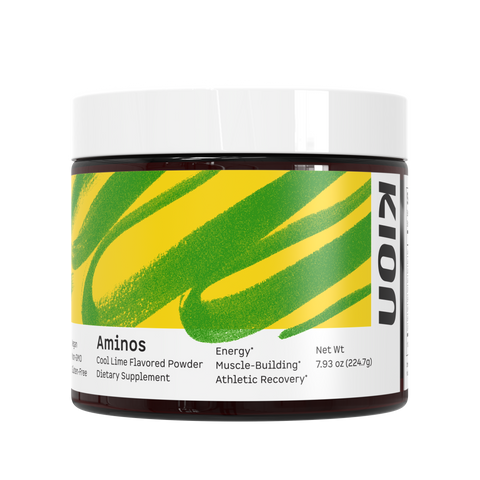
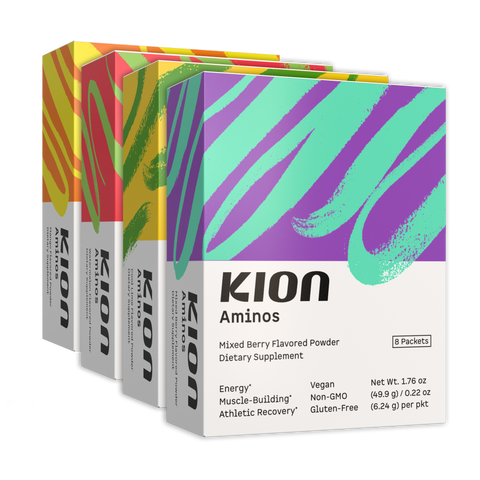
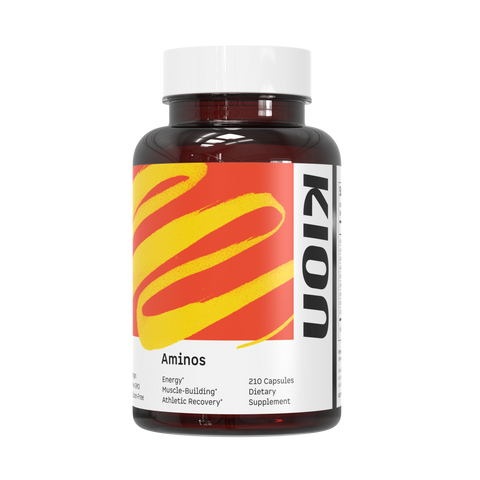
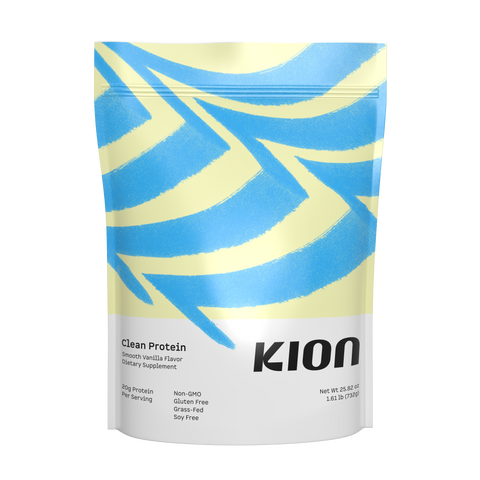
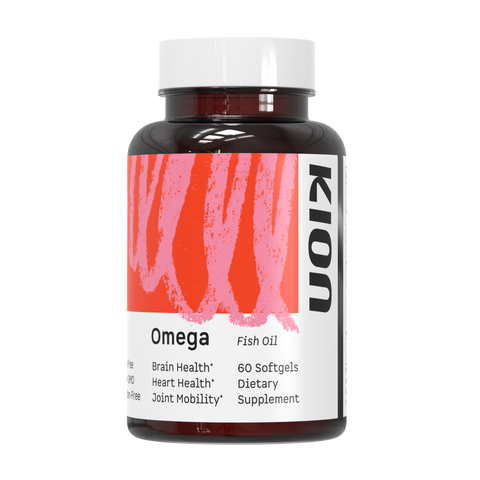
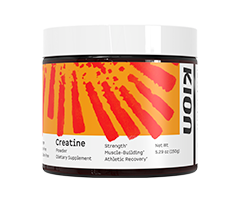
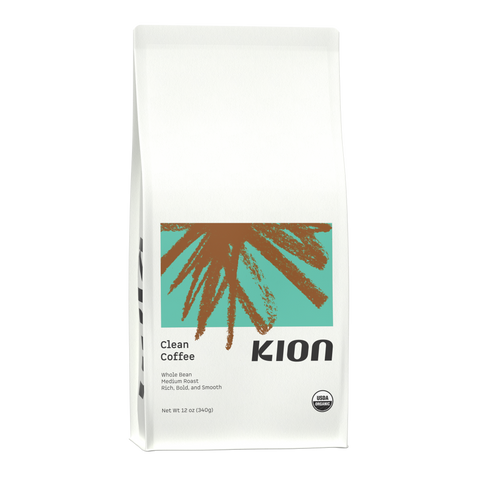
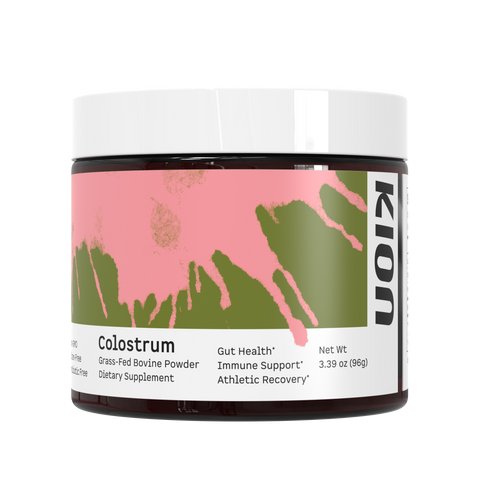
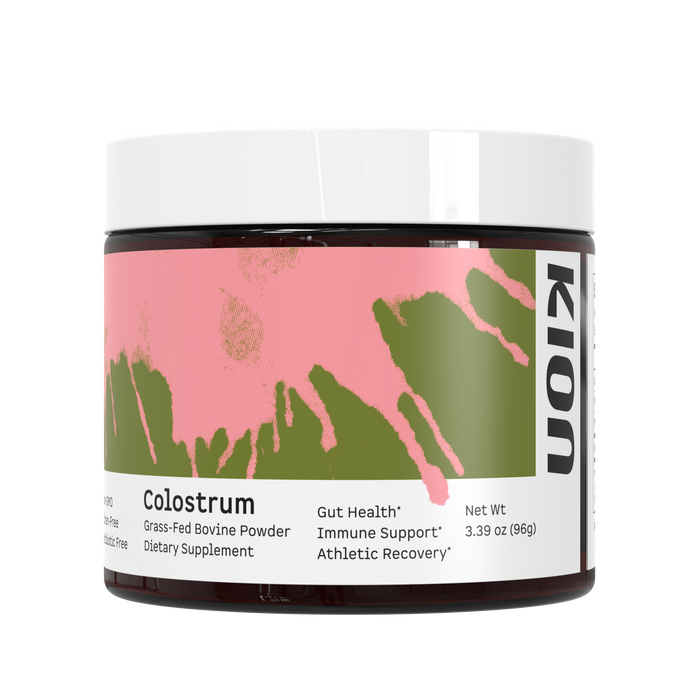







Comments
How is your colostrum processed? I’m reasonably sure it’s pasteurized, but what is the method of turning the colostrum into a powder? Is it baked or flash frozen or freeze dried?
———
Kion replied:
Our primary concern in processing Colostrum is to retain as much of the IG content, among other bioactive properties, as possible. You are correct in that our colostrum is pasteurized – using a flash pasteurization process to limit time under heat. From there we employ a spray drying method using a proprietary ambient-air temperature drying method without any added heat.
Cathy Absher on